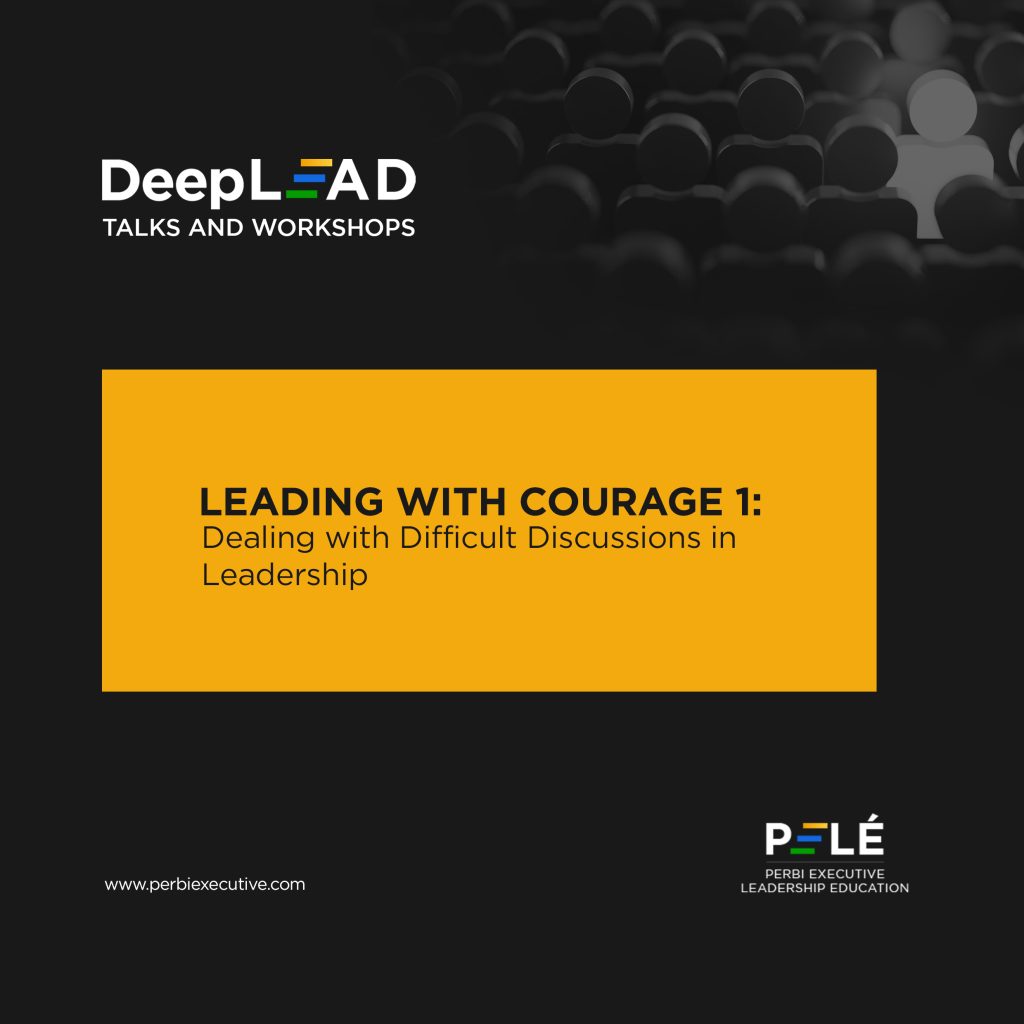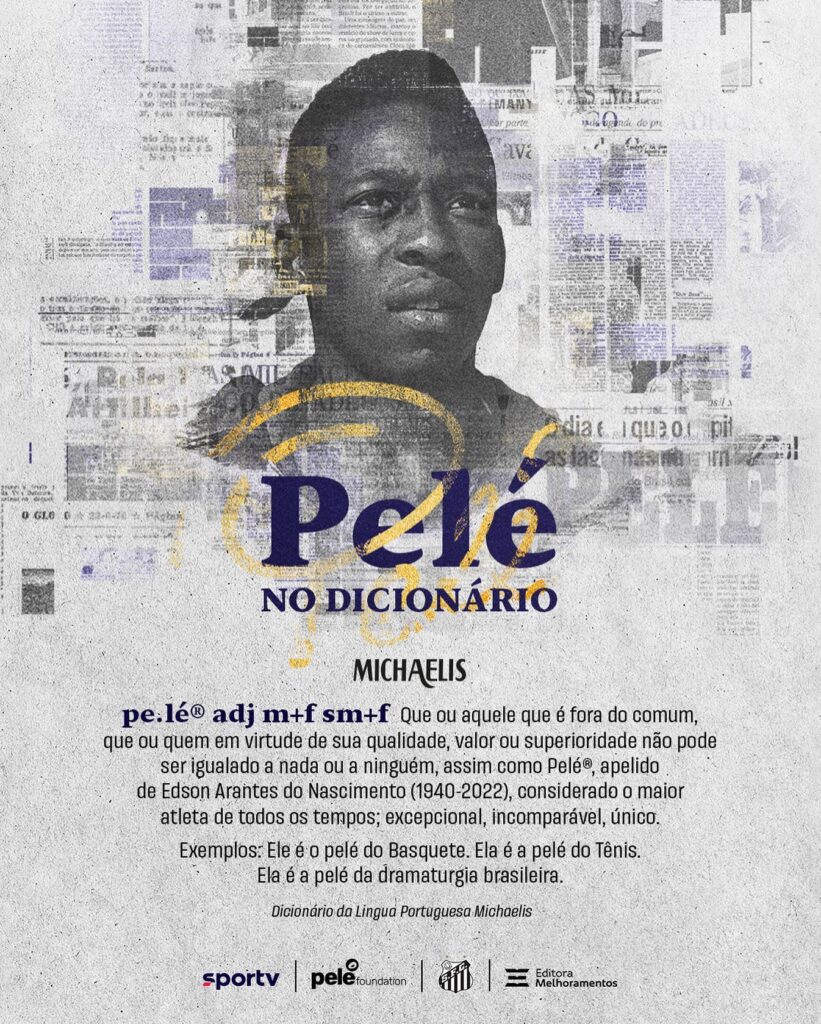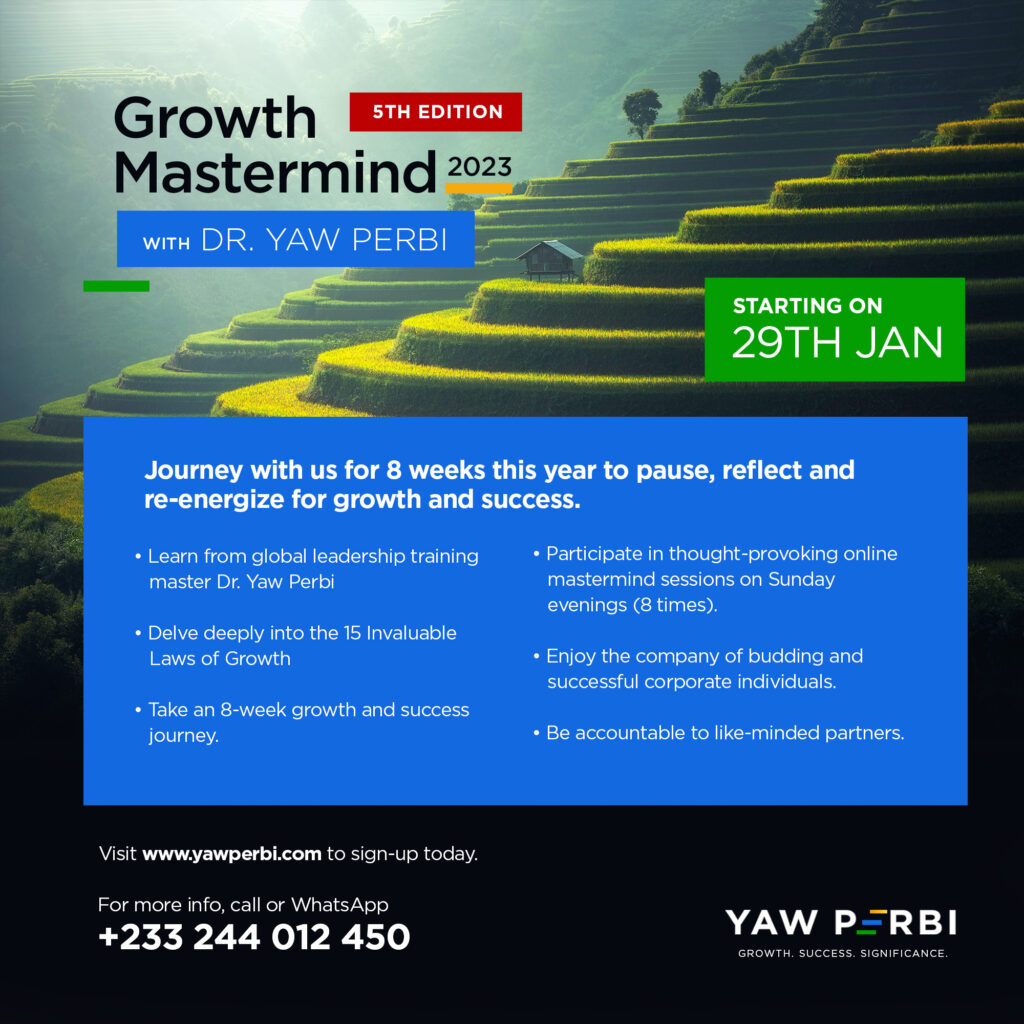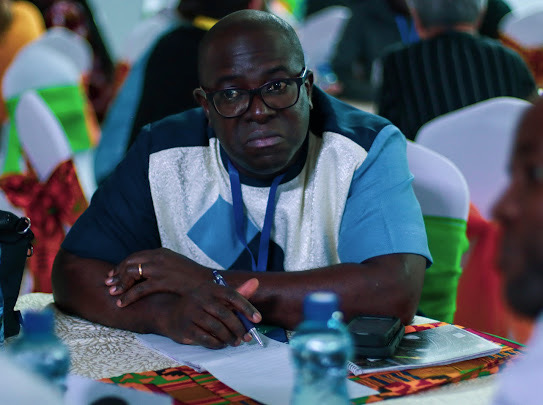
Leading with Courage 1: Dealing with Difficult Discussions.
All is set for a life-saving operation. On the surgical table lies a man whose continued living depends on the amputation of a diabetic foot that is giving the rest of his body hell. The renowned surgeon dashes in, marks a leg, drapes it quickly and begins to swab it, disinfecting the operating area for action. Then a sudden realization hits his scrub nurse like a thunderbolt. That is not the limb to be amputated. Would she have the courage to bring up this crucial conversation for a timely intervention? No. She remains silent. The wrong leg is amputated.
At the invitation of The Association of International Certification Schools (ASICS) in Ghana, PELÉ delivered a Masterclass on Leading with Courage: Navigating Difficult Discussions. This was at the Airport View Hotel in Accra. This is the second time engaging this body of leaders–founders, proprietors and C-level executives–of private schools that run either the Cambridge or International Baccalaureate programmes. At their Revive annual retreat in the Volta Region last year, the PELÉ team delivered a two-hour workshop on Leading with Self-Awareness, which included sharing an analysis of the DISC personality assessment of each of the ASICS council members and the potential areas of synergy as well as conflict as a team.
Scenarios
Dealing with difficult discussions could produce humorous scenarios like the banter between two of the richest people on the planet, Mike Zuckerberg and Elon Musk, that just might end up in an entertaining duel. It will be a sight for sore eyes should they actually, eventually, get into that much-talked about cage fight. However, not navigating difficult discussions well (or at all) could end up in sheer disastrous situations, like the surgeon (above) who amputated the wrong leg just because his scrub nurse couldn’t bring herself to raising that ‘crucial conversation’ when she noticed the wrong leg was being marked and swabbed for surgery. The anticipated pain we fear and so keep silent turns out better than the actual disaster that occurs because of our silence. Yes, often there is no pain per se beyond the little discomfort; but even when there is, it is better than we thought. Much better. How many organizations are disastrously amputating wrong legs because the right mouths won’t speak?
Difficult discussions or ‘crucial conversations’ may range from high-level, multilateral Israeli-Palestinian issues to simpler organizational ones like delayed projects and presiding over a poor performance review to as personal as employee body odour or bad breath.
Hard Questions about Hard Situations
Since “thinking begins when you ask really difficult questions” (Slavoj Zizek), let’s ask a few Lencioni ones (from The Motive):
1. Do you organize “team-building” activities for your team that are fun but that largely ignore uncomfortable conversations about their collective behaviours?
2. Would you rather learn to live with a person’s difficult behaviours than endure an awkward, potentially emotional discussion with them?
3. Do you find yourself venting about your direct reports’ or other stakeholders’ behavioural issues rather than talking with them directly?
4. Do you find yourself saying about potential uncomfortable conversations, “I don’t have time for that” or “I can’t waste my energy on this”?
If you answered ‘yes’ to any of the above four questions, you are a candidate for the Dealing with Difficult Discussions workshop.
One of Five Things C-level leaders Suck at
In his no holds barred book, The Motive, Patrick Lencioni observes that reward-centered leaders find the following five responsibilities tedious, uncomfortable, plain hard: 1. Developing the Leadership Team, 2. Managing Subordinates (and making them manage theirs), 3. Having Difficult and Uncomfortable Conversations 4. Running Great Meetings 5. Communicating Constantly and Repetitively to Employees. Smack in the middle of the junk pile is abdicating dealing with difficult discussions.
So, while these ASICS leaders are already prone to shirking their responsibility to navigate uncomfortable and difficult conversations just by virtue of being C-level leaders too, the ones who are African have the odds stacked against them even more as “high-context nations prefer the avoiding and obliging conflict styles more than low-context nations” (Croucher et al, 2012).
What to do
So what leaders need is a mindset shift as well as a new skillset. The saving paradigm is this: “Effective team-building always involves emotional and uncomfortable conversations” (Lencioni). Every leader worth their salt knows ‘it comes with the territory’ and the response-able thing to do is to deal with it response-ably. There is no true success in life or leadership without having to deal with difficult discussions. Navigating difficult discussions has more to do with YOU than the issue(s) or the other person(s) involved: one’s motives (for leadership), personality style (assessable via the DISC) and values. This is why whenever we can, we would rather run the Leading with Self-Awareness masterclass or workshop first, since these are only three of eighteen factors we bring to the fore that leaders must be self-aware of.
Ín terms of skills, the new skillset involves a couple of tools. One of the tools to practice is known as Climbing the Ladder of Integrity. In our 150-minute workshops, we invest at least half-an-hour of practicing this skill and getting feedback. Not so much for confronting someone per se, but for first getting clear within yourself.
Concluding with Courage
Leading with courage, really, is leading with heart (don’t forget ‘heart’ is cœur). With this courage, which is not the absence of fear but the taking of action forward in spite of it. In the words of former U.S. president Franklin D. Roosevelt, “Courage is not the absence of fear, but rather the assessment that something else is more important than fear. Progress.” Remember the anticipated pain we fear and so keep silent? Even the Madiba, Nelson Mandela, confesses: “I learned that courage was not the absence of fear, but the triumph over it. The brave man is not he who does not feel afraid, but he who conquers that fear.” May we too, like him, learn this and lead with heart–courage, character, compassion, competence–navigating ‘crucial conversations’ and difficult discussions.
PELÉ’s vision is a global ecosystem of authentic leaders characterized by healthy growth, holistic success and lasting significance. Consequently, we are on a mission to offer authentic and customized relationships and resources to C-level executives to grow personally–including dealing with difficult discussions–to succeed professionally, and become significant societally.
REFERENCES
Patrick Lencioni (2020): The Motive: Why So Many Leaders Abdicate Their Most Important Responsibilities. The Table Group.
Stephen M. Croucher, Ann Bruno, Paul McGrath, Caroline Adams, Cassandra McGahan, Angela Suits & Ashleigh Huckins (2012): ‘Conflict Styles and High–Low Context Cultures: A Cross-Cultural Extension,’ Communication Research Reports, 29:1, 64-73. Link to this article: http://dx.doi.org/10.1080/08824096.2011.640093

The ‘L’ Word. Leadership is Not a Dirty Word.
Perbi Executive Leadership Education (PELÉ) just concluded a successful co-hosting of the annual John Maxwell Team conference dubbed Live2Lead in Accra. Corporate, non-profit and other leaders in Ghana experienced in real-time, via simulcast, the motions colleagues in Atlanta, Georgia were also going through in the United States. Live2Lead. Live is an ‘L’ word, so is Lead. Yet Google “The ‘L’ Word” and you are more likely to be greeted with Lesbian or even Los Angeles and not Lead(ership). In fact, a certain Showtime drama series that depicts these other L’s and aired in the first decade of this century dominates the internet should you conduct “the ‘L’ word” phrase search.
For us at PELÉ, Leadership is the ‘L’ word. If Dr. John C. Maxwell is right that “leaders see everything with a leadership bias,” then is it any wonder? This is incredibly important to us in our quest to form a global ecosystem of authentic leaders that in our DeepLEADTM courses, the first of all 24 modules (in a three-part series comprising eight modules each) is actually entitled “The ‘L’ Word.” We LOVE Leadership.
Some associate leadership with politics and because “politics is dirty” leadership gets a bad rap; leadership then becomes a dirty word and a dirty thing. Politics, like any other worthwhile thing, can be dirty. But even when and where it is true that “politics is dirty,” leadership is bigger than politics. In fact, our founding principal at PELÉ is on record to have said that “leadership is too important to leave it to politicians alone.” Similarly, because “Gen Z doesn’t do hierarchy,” the current rejection of twentieth century ‘command and control’ and ‘authoritarian’ leadership to rather embrace a flatter perception of the leader—plus the notion of twenty-first century ‘distributed leadership’—also tends to make the word ‘leadership’ undesirable, even demonized in some quarters today. For many, leaders and leadership have had a bad rap, a negative reputation, hence the title and subtitle of the first of our DeepLEADTM modules, The ‘L’ Word—Leadership is not a dirty word, with the wild hope to change that narrative in the head and heart of anyone who cares to pay attention. We establish the paradigm that the current rejection of twentieth century ‘command and control’ and ‘authoritarian’ leadership and the embracing of a flatter perception of the leader plus and distributed leadership does not exclude how vital leadership is and what it can/cannot do.
‘O’ for Objectives
While the overall aim of the DeepLEADTM Growth Series is “to establish an indisputable link between the person of the leader—including their self-awareness, life story, character, temperament, habits, emotional health—and the success of leadership,” the specific objectives of The “L’ Word module include exposing students to the wide array of leadership opinions and definitions to appreciate the breath and nuance of the ‘L’ subject. By the end of the course, one would’ve laid “the foundation for the topic of leadership in a memorable and definitive way for not just the course itself but for all of life.” While one would’ve compared and contrasted two dozen leadership definitions and descriptions, studied a 200-year panorama of leadership paradigms from the Great Man Theory of the 1800s to Authentic Leadership or Adaptive Leadership of the first and second decades of this century respectively, there’s an all-encompassing Dr. Yaw Perbi definition of a leader, which we use throughout the course and in our engagements with clients.
‘D’ for Definitions
It has been interesting observing the definitions and descriptions of leadership that have most caught the attention and strummed the heartstrings of the October 2023 cohort of the DeepLEADTM live Masterclass. Already, the fact that DeepLEADTM embraces complexity, straddles paradigms and tames tensions is forming these in them as they grapple with definitions that even seem contradictory, like Mandela’s shepherd paradigm of leading from behind and fellow Noble Prize laureate Mott’s whose definition of leadership is being in front and staying ahead! Here’s John R. Mott (Nobel Peace Prize laureate 1946): “Leaders are people who know the road, and who can keep ahead, and who can pull others after them.” Here comes Nelson R. Mandela (Nobel Peace Prize laureate 1993): “A leader…is like a shepherd. He stays behind the flock, letting the most nimble go out ahead, whereupon the others follow, not realizing that all along they are being directed from behind.” The DeepLEADer has the wisdom to know when and where to be ahead or lead from behind.
Whether it’s the leadership theories, descriptions or definitions in The ‘L’ Word module, by the end of it leaders undergoing it would realize that no one theory, description or definition is enough to explain all of leadership. Warren Bennis captures the nuance and complexity of the ‘L’ word well when he asserts, “Like love, leadership is something that everybody knows exists, but no one can define…” No wonder, he explains, “decades of academic analysis have given us more than 350 definitions of leadership.”
Conclusion
What dominates our minds when it comes to “the ‘L’ word” is miles apart from what populates a typical Google search today. But Leadership is the ‘L’ word. And it is incredibly important, as strongly put in the DeepLEADTM series, that because “everything rises and falls on leadership” and “leadership is cause, everything else is effect,” one day, eventually, Leadership will get the most results in an internet search for “the ‘L’ word.” In the course we state, and it bears repeating, that “Whether in normal times or unusual ones, the tenets and principles of great leadership ought to be passed on to each generation.” So no matter what letters we assign to the generations–X, Y, Z, Alpha, whatever–that in each and every generation, the ‘L’ word would be Leadership. That’s what we live for, why we’re here. We live to lead.
Post Script
DeepLEADTM is for any leader seeking profound, authentic transformation—of self, systems & society—that lasts. There is a live DeepLEADTM Masterclass currently ongoing. Watch out for the launch of the online pre-recorded, self-paced version in December 2023.
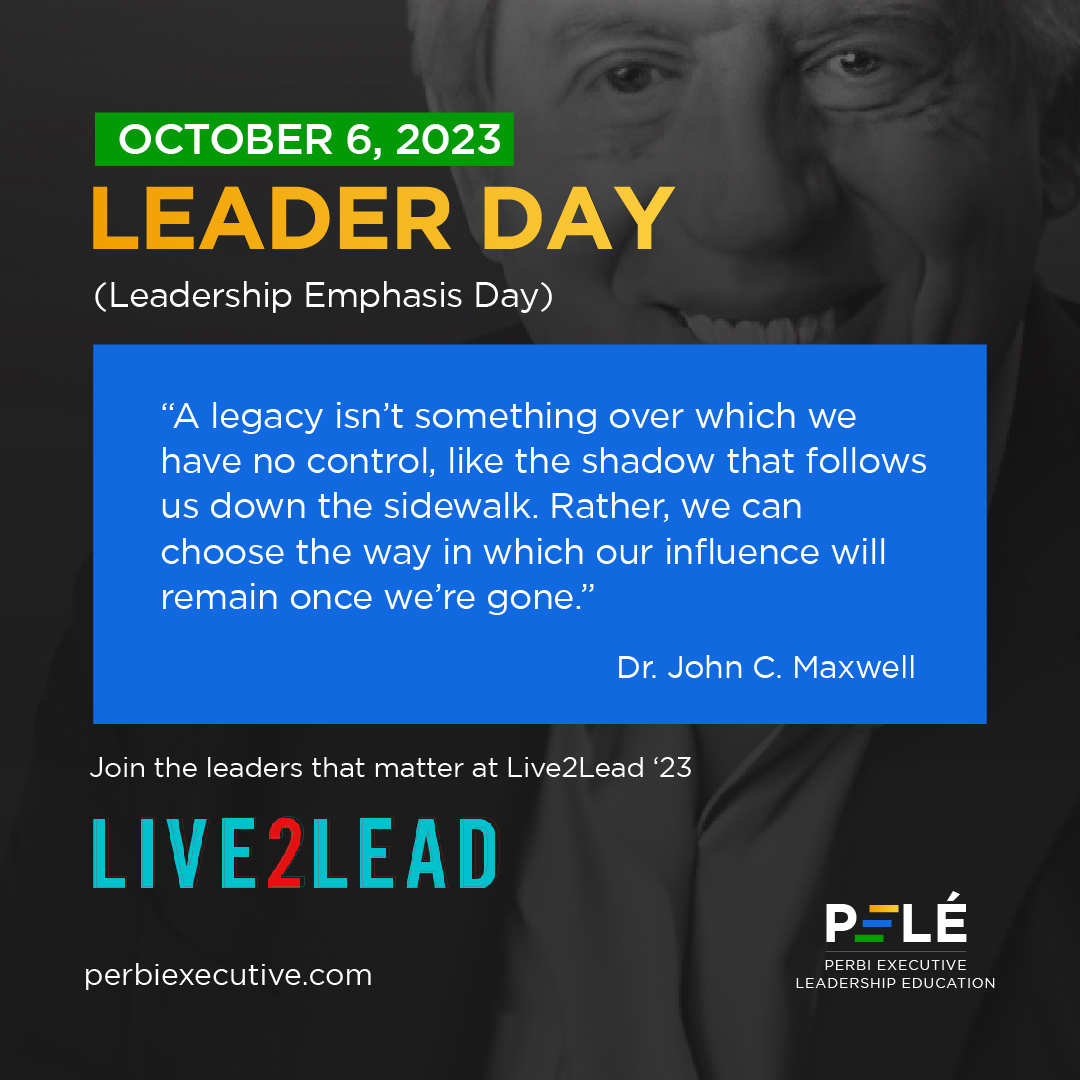
Meet Mentor-in-Chief, Dr. John C. Maxwell
No single individual has influenced leadership paradigms and praxes in the last four decades like Dr. John C. Maxwell. One would have to convincingly argue otherwise with a long list of millions of people on every continent of the planet whose patronage has inadvertently crowned Maxwell a #1 New York Times bestselling author, coach, and speaker multiple times over. With more than 30 million books sold, John has been identified as the #1 leader in business by the American Management Association® and as the world’s most influential leadership expert by Business Insider and Inc. magazines.
Dr. Maxwell has also received the Horatio Alger Award, as well as the Mother Teresa Prize for Global Peace and Leadership from the Luminary Leadership Network. His organizations—The John Maxwell Company, The John Maxwell Team, EQUIP, and the John Maxwell Leadership Foundation—have trained millions of leaders from every nation in the world.
In the late 1990s, The HuD Group, which we are proudly affiliated with, started understudying and teaching his opus magnus, The 21 Irrefutable Laws of Leadership, and hasn’t turned back since. At the Perbi Executive Leadership Education (PELE) company, our Principal and a number of our coaches are certified Maxwell coaches, speakers, trainers on the worldwide John Maxwell Team (JMT).
MAXWELL’S LIVE2LEAD ANNUAL CONFERENCE
The annual Live2Lead conference is John’s brainchild, and he always opens and closes, with other phenomenal faculty sandwiched in between. As PELE, we have been privileged to host it on both sides of the Atlantic, in Montreal, Canada as well as in Accra, Ghana. We are absolutely convinced that leadership is taught; not just caught. Join John and the stellar faculty he’s put together for this year’s Live2Lead conference and up your leadership game.
This year, together with our partners in Ghana we’ve chosen the theme, Leading for Legacy. Here’s John’s take on it: “A legacy isn’t something over which we have no control, like the shadow that follows us down the sidewalk. Rather, we can choose the way in which our influence will remain once we’re gone.” Come and find out how!
Register now through this link. Impress upon your organization to join the Leadership Emphasis Day/Leader Day movement that will transform society by becoming a Patron of Live2Lead. A Patron company or individual is one that sends at least 10 leaders to Live2Lead. Together we can change our world for the better! Yes we can!
Register HERE, NOW.
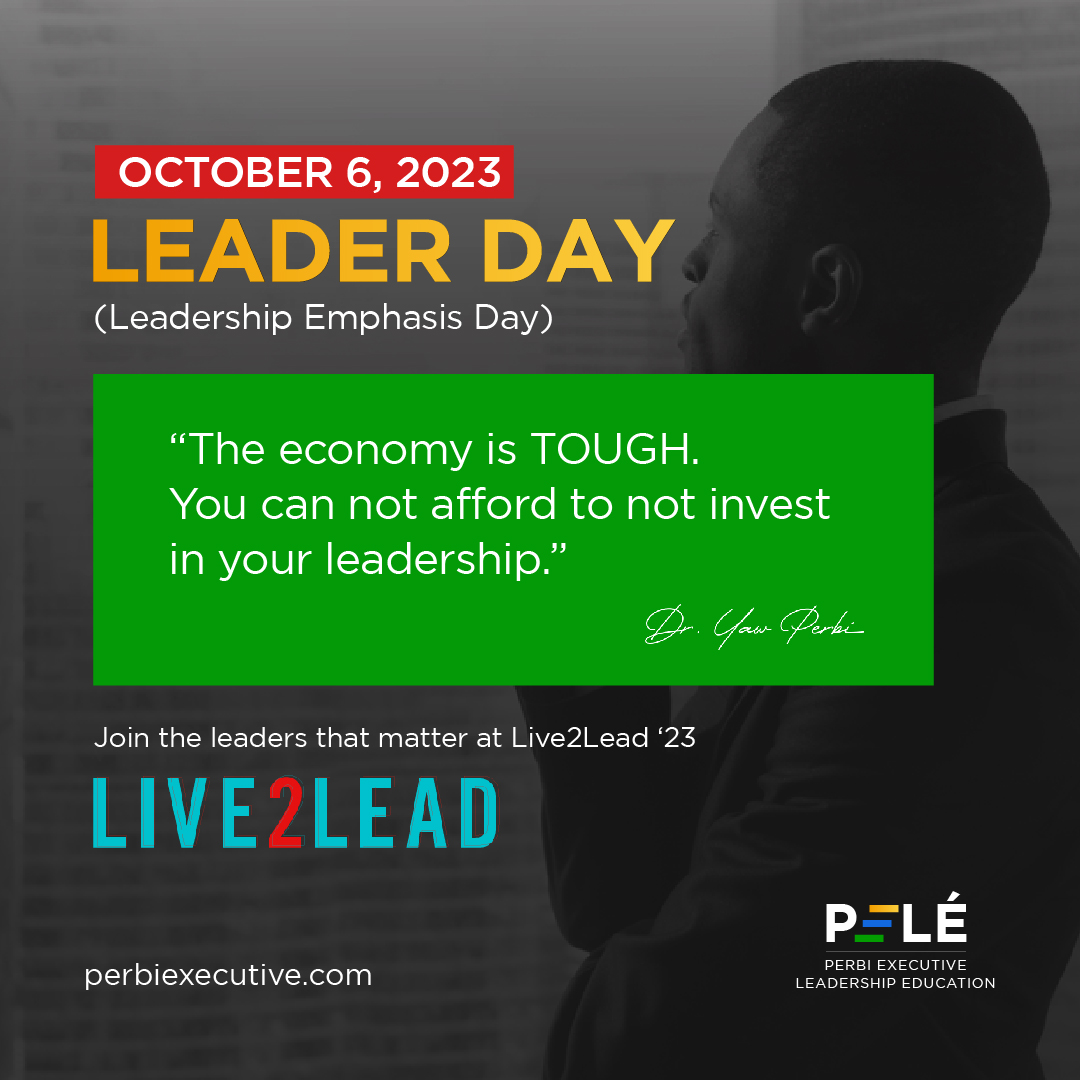
Live2Lead 2023: Leader Day Comes Again This Year.
There was recently a humorous corporate piece where the smart CFO said to the CEO, “We can’t afford to invest all this money developing our leaders. What if they leave?”
To which the wiser CEO replied, rather curtly, “What if we don’t invest in our leaders and they stay?”
You would think that “because the economy is tough let’s hold off the ‘luxury’ of leadership development” yet the irony is that precisely because the economy is tough you cannot afford not to grow your leadership to overcome the challenge and soar to new heights. What if the economy isn’t going to get better anytime soon. Will you survive? How will you survive, let alone thrive, if you don’t get better than you are now and better than the economy you live in?
THE FRUSTRATION LIVES ON, BUT SO DOES THE DREAM
Last year, my frustration was that “there is a day dedicated to almost every cause under the sun and pretty much each of the Sustainable Development Goals (SDGs)—women’s day, water day, literacy day, friendship day, founders’ day … even toilet day. Yet the one thing that causes each of these matters to rise or fall has no such day dedicated to it to elevate and emphasize it. Even then, is a day enough? Surely not; but it is a good catalyst for the remaining three hundred and sixty four (or five) days,” I said.
Last year, I shared a dream that “the first Friday of October each year will become universally known as LEADER DAY.” It bears repeating that, “There is nothing special about the first Friday in October per se except that consistently for about a decade now, our mentor and leadership expert, John C. Maxwell, has been gathering some of the best leadership minds and hearts on the planet to speak to the issue, and we might as well leverage the opportunity rather than reinvent the wheel. Live2Lead is the name of that event. The name says it all, that’s our purpose on earth: We live to lead.”
We held a successful event last year, only online, looking at the theme “Leading with Integrity & Inspiring Hope, for the Common Good.” To say Patrick Awuah (Founder & CEO, Ashesi University), Patricia Obo-Nai (CEO, Vodafone), James Ebo Whyte (CEO, Roverman Productions), Gwen Gyimah Addo (CEO, The Hair Senta), and Kathleen Addo (Chairperson, National Council for Civic Education) were phenomenal resource persons is an understatement. We will bring you snippets, in text and video, of what they shared to remind and stimulate you towards integrity and hope for your leadership.
LEGACY THIS TIME
This year, two more John C. Maxwell-trained and certified colleagues in Ghana have joined our trio of 2022 to pour more fire into the dream that ultimately the first Friday of October each year will become universally known as LEADER DAY. We have settled on ‘Leadership Legacy’ as the theme and will soon be outdooring the slate of speakers, including my celebrated German-trained professor of Cardiosurgery when I was a medical student at the University of Ghana Medical School. We’ve got to live to lead today, for the sake of lives tomorrow. That’s legacy.
You and I know too well the dearth of leadership in our country and around the world, whose ripple effect is the tough economic situation we find ourselves in, and more. We hope to double last year’s number of attendees–this time both online and in-person at the Ecobank Ghana headquarters auditorium–to benefit from the LIVE simulcast from Atlanta and the local content for our context, sandwiching the global feed.
CONCLUSION
When leaders get better, everything and everyone gets better too. There is no benefit of not investing in your leadership to get better because the economy is tough. Ironically, the only way out is for you and everyone else to invest in our leadership development to get better. That is the tide the raises all the boats with it, including the economy. In the words of the charming African-American poet Maya Angelou, “Do the best you can until you know better. Then when you know better, do better.” Mark down Leader Day 2023, October 6, to know better, get better and do better.
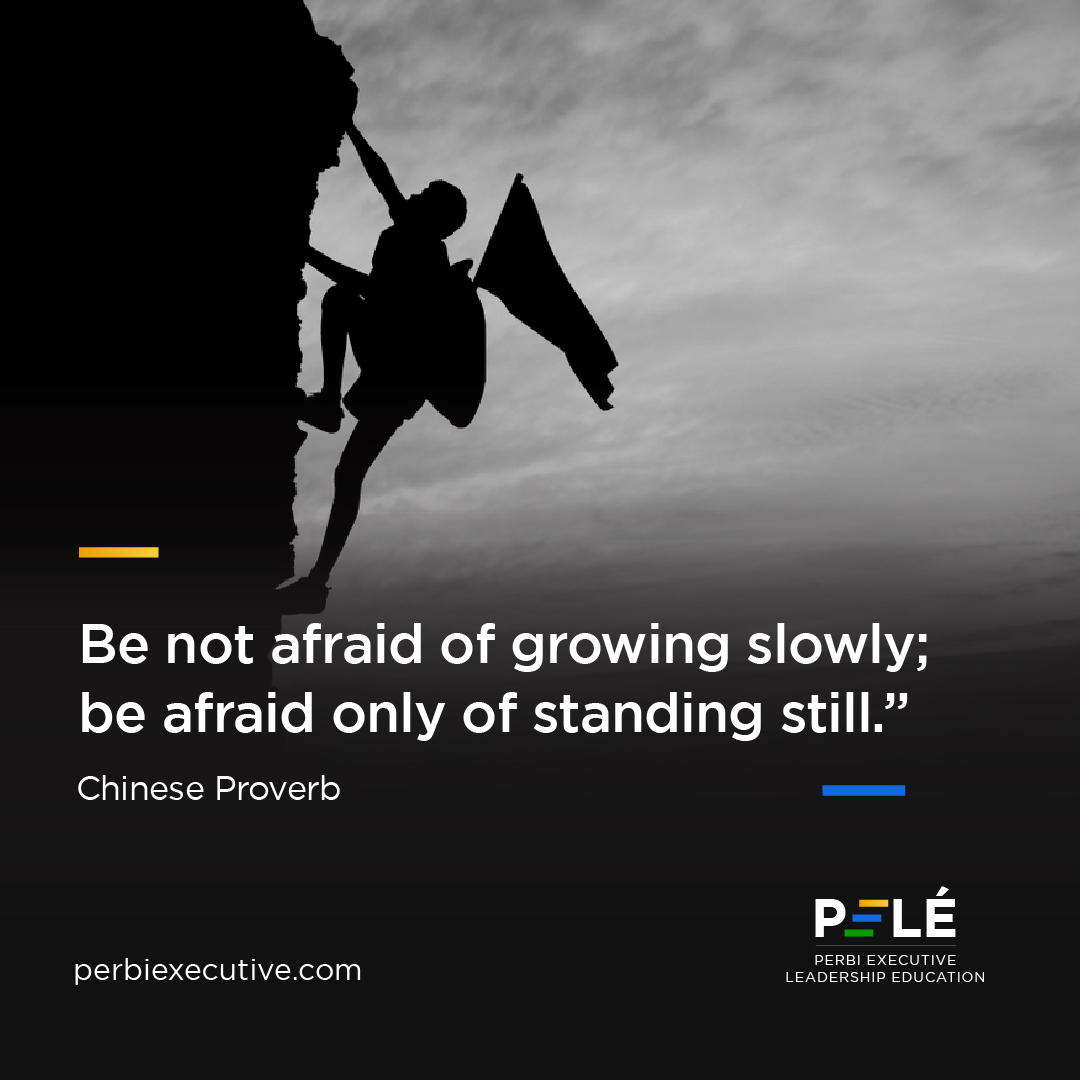
Big Events are Overrated, Trust Process.
“Trust the process” has become cliché. Yet many don’t understand it, let alone mean it. In fact, most people are more attracted to big events and striking occasions but the aim of this article is to show that these are overrated. We are attracted to the big bang, amazing testimonies, the one time lottery win, that miracle… all of which are good but in the long term, those are not the things that sustain societies, grow businesses or deeply transform us long term. It is process, process, process.
MENTORING AND THE LAW OF PROCESS THEN
These thoughts have been coming to mind over the last couple of weeks because of two recent incidents, one in the church and one in the corporate setting. Regarding the former, l led part of an annual discipleship capacity building workshop for my local church at the University of Ghana. Discipleship is the word Christians use for spiritual mentorship. I inquired what they would do if they were God and came on Earth in the person of Jesus Christ (as Christians believe) to do an effectual job of changing the world. What would they do?
Well, many would go head-on and prioritize filling stadia with people (and there were stadia in the time of Jesus) or fill the plains like where he fed 5,000 then 4,000 (not counting women and children) day after day, as the rule not the exception. Some would constantly go to the royal palace and do some leadership workshops for Herod and his ilk etc. But the Rabbi did none of that routinely. First of all, He took 30 years to prepare Himself from conception through childhood to turbulent youth years to adulthood. He came as a foetus, endured nine months of pregnancy and went through a 30-year process of learning–of obeying His parents, of apprenticing to be a carpenter like His earthly dad, of learning the Torah like other children of His day etc. Yes, all of that. Process.
Eventually when it was time to launch His ministry at 30 (phew! finally!) what does He do? Nothing prime-time TV worthy (oh, of course apart from His spectacular baptism). The baptism in the Jordan by Cousin John was a big event. But the rest, again, process. After all-night prayer, He goes around town and handpicks 12 people, just a dozen, and decides to walk with them, life-on-life, for three-and-a-half years. As Professor Robert Coleman points out in his magnum opus, His method of training was His life itself, it wasn’t just “read this book.” No! Process, day by day by day by day by day for nearly as long as we have to wait for the next Olympics or World Cup tournament.
Only a few years down the line these ordinary fisherfolk so got Him that each was martyred for what they had come to see and taste and know. In a few years, it was reported of His followers, “the people that have turned the world upside down.” Two thousand years later, what do we see? There are 2. 3 billion Christ followers on every continent and in every country and geopolitical space today. Yet the original leader Himself never travelled beyond 50-100 km radius of where he was born. The farthest he went to was Egypt, in His childhood, when his family temporarily migrated to Africa as refugees. Why this impact? How? The law of process.
He knew if he took 12, focused on the few and worked on them life-on-life for years, that the few would bring another few who would bring a few more, who would mentor a few, who would bring a few and over years this kind of impact would happen. Deep transformation doesn’t happen in rows, like we sit in events, but in circles. It happens in circles, small groups, day by day, week after week, month after month.
MENTORING AND THE LAW OF PROCESS NOW
At the said workshop at the University of Ghana, I showed the attendees a simulation: if one person who comes has a relationship with the Lord Jesus Christ decides to disciple another person, just one person per year, life on life, week by week, studying scriptures, eating together, praying together, travelling to places together etc. Just a person a year. At the end of the first year, there would be only two disciples of Jesus. The original then instructs the ‘graduating’ disciple to do same for another, just as Paul admonished Timothy: “And the things that you have heard from me among many witnesses, commit these to faithful men who will be able to teach others also” (2 Timothy 2:2 , NKJV).
At the end of the second year what happens? You still mentor a second person so there are two of you. But the original person you discipled in the first year has now also discipled somebody else, thus there are four of you. First year it was just addition, the second year there was multiplication. By the third year and onwards, there isn’t just multiplication but exponential multiplication. And if it continues like that, just one person each annually, by the end of the tenth year, you would be over a 1000 people (quantitatively impressive) deeply transformed (qualitatively impactful). You’ve gotten the mass that you wanted, yes, a thousand people you would have wanted to fill an auditorium with to impact all at once (but would leave the program and achieve nothing). Now you’ve gotten that same 1,000 people after a decade but they would be solid movers and shaker.. It may seem inefficient at first but it is deeply effective and with time it becomes powerfully efficient as well. Within 10 years, you would have a 1000 people who are deeply transformed and now you also have the numbers. That’s the law of process.
MONEY AND THE LAW OF PROCESS NOW & THEN
Then, about the training for the core leadership team at Perbi Cubs we talked about how leadership is built day in and day out and not in a day. John Maxwell talks about that as the fourth ‘irrefutable law’ in his New York bestselling book, The 21 Irrefutable Laws of Leadership. I have been teaching this book for over 20 years now. “Leadership is built daily and not in a day,” Dr. Maxwell says. So is anything else of enduring value. Daily; not in a day.
To illustrate, I actually showed the EdTech leaders an investment chart I created a couple of decades ago in my book Financial Whizzdom, comparing a youth who starts investing at 20 and his uncle who starts investing at 30. Both invest the same amount (say GHS 2,000) at the same annual interest rate of 10% p.a. The lad invests for 10 years, stops investing but leaves the money to keep growing. The uncle who started at 30 doesn’t stop and continues putting in GHS, 2,000 every year till the age of 65. At the age of 65, this boy who started and stopped and just let his money keep growing would have more money, about GHS 200,000 more, than his uncle. All because the young man started earlier and got the Law of Process working for him a whole decade prior.
CONCLUSION
Process works. It gives sure and deep and lasting results. Don’t skip processes. Build your leadership daily. Build your spiritual life daily. Build your health daily. Build your intellectual capacity with a little reading everyday rather than just binging once or twice a year. Something you are doing everyday is determining your future. Or as Tag Short put it, “the secret of success is found in your daily agenda.” A related Chinese proverb really intrigues me. Here’s my paraphrase: “Do not fear growing slowly, what you should fear is standing still, not growing at all.” Trust the process. Truly, trust process. Process would beat big events and one-time shiny experiences any day, all day, long-term. It’s a timeless, universal truth. Trust it.

Introducing PELÉ (Perbi Executive Leadership Education).
Imagine a flourishing global ecosystem of authentic leaders characterized by healthy growth, holistic success and lasting significance. That’s the big dream and eternal hope fuelling our daily tasks at the Executive Education firm that bears my name, YAW PERBI. A couple of years ago, after eight years as President & CEO of a Canadian non-profit in the international education space and having garnered several years of executive leadership experience in the Ghanaian military and medical fraternity, global media, the United Nations in Cote d’Ivoire etc. I decided it was time to serve all of that to leaders of leaders: the C-suite. So I came out of sabbatical and stepped down as President of ISMCanada to do this.
Since according to my mentor of a quarter of a century, John C. Maxwell, by whom I’m officially a certified coach, speaker and trainer, that “one is too small a number to achieve greatness,” I have been steadily growing a global team of competent, caring, confident and character-based co-leaders on/from every continent in the world beyond myself to make our faith, sight. That journey has culminated in the birth of PELÉ.
A Play on Words
In keeping our focus on growing and coaching executive leadership to succeed, ever broadening the authentic relationships and resources we bring to bear on our task, we decided to move away from YAW PERBI specifically and to build Perbi Executive Leadership Education, PELÉ for short. PELÉ is not exactly just a happy coincidence, for as a once-upon-a-time football fanatic and soccer player for my elementary school, I recently engaged in my fair share of arguments about who the greatest soccer player of all time is between the shouts in favour of Lionel Messi after lifting the Qatar World Cup trophy on December 18, 2022 and the incessant calls to hallow the legendary Edson Arantes do Nascimento, better known by his nickname Pelé, who died eleven days later on December 29. As a double childhood hero—both of my dad and myself—I had been pondering a way to honour a Black man who gave everyone so much delight and so many people of his skin hue so much pride.
As I’ve stated before, “I am eager to particularly provide C-level executives of African descent with the paradigms, processes and tools necessary to maximize their potential, to be world class, take the world stage and make their dent in the universe.”
A Word In Play
Then came April 2023 when the Pelé Foundation and Sportv launched the “Pelé in the dictionary” campaign to pay tribute and recognise his legacy in other fields beyond sport. Of course his name has long been a synonymous with success and excellence, both of which are values of our Executive Education company, but now the great Brazilian forward and only human to have lifted three World Cup trophies officially had his name in the Portuguese dictionary. The adjective “Pelé” has been added to the Portuguese edition of the Michaelis dictionary to describe “someone out of the ordinary.”
Pelé, the nickname of the late football legend, has officially become tantamount to “extraordinary, exceptional, incomparable, unique.” Pelé is an adjective for something or someone that is out of the ordinary, one who by virtue of their quality, value or superiority cannot be equalled to anything or anyone, just like Pelé. For example, he is the Pelé of basketball, she is the Pelé of paediatrics.
What’s in a Name?
According to Emily Olson of NPR, “It was in the small, impoverished town of Bauru where he first got his nickname playing in youth leagues.” Apparently, even Pelé himself wasn’t sure where it came from, he wrote in a 2006 piece for The Guardian, but it may have been a play on Bilé, the nickname of a goalkeeper for the team Pelé’s father played on. “I can remember the name really bugged me at first. I was really proud that I was named after Thomas Edison and wanted to be called Edson,” he said. “I thought Pelé sounded horrible. It was a rubbish name. Edson sounded so much more serious and important.”
PELÉ by YAW PERBI is an Executive Education firm that offers authentic and customized relationships and resources to C-Level executives to grow personally, succeed professionally and become significant societally. To this end, the company provides Pelé services in leadership development, management training, executive coaching and publishing. Our Pelé coaching, authoring, speaking, and training are centred on LIFE—Leadership, Integrity, Family, Entrepreneurship.
Conclusion
We are PELÉ–extraordinary, exceptional, incomparable, unique–but more importantly, we form PELÉs, who are authentic, out of the ordinary executive leaders in every sector of life and all society’s centres of influence. As a forward-looking, authentic leader, if you want to dextrously dribble through LIFE and exceptionally hit goals like the legendary Pelé, you know where to look for the kind of coaching and training it will take: Perbi Executive Leadership Education (PELÉ). Like begets like.

The Way Up is Down.
At Easter, I threw a challenge to the leaders in my network: lay down yourself for someone else’s uplifting. This challenge was triggered by inspiration I received when I had just returned from a college graduation the week before Holy Week. Although it had been a season of graduation ceremonies in Ghana across many tertiary institutions, this was a special one, a very special one.
About six years ago, our family travelled to Ghana from Canada on furlough. We had planned to stay the entire period at my parents-in-love’s residence in Accra. Being a reasonably big-sized big family (the children weren’t even seven yet!) we obviously needed some domestic assistance. We were glad to welcome a promising young lady, Benedicta, as our new house help after a couple of failed trials.
As we lived with her and observed her initiative, diligence, smartness, humility, kindness and care we took an extra interest in what her ultimate dream was. She had the potential to be like any one of us high income, high impact professionals and not necessarily having to be confined to a vocation of domestic assistance her entire life. We found out about her high school final grades and thought they could be improved. And so we (my wife and I, parents-in-love and other family members) decided to invest in her, everything from extra classes through re-sit examinations. Even when she was finally given a shot at college my mother-in-law would get her books and do mock interviews with her to prepare for the entrance interviews. Long story short, she made it into nursing college.Now, that is the graduation we went for that day.
Today, Benedicta is a nurse. She graduated from the Nurses & Midwives Training College in Teshie, Accra, Ghana. From house help to nurse; and that is what brought me to the Easter challenge because at Easter, we see the ultimate leader Himself laying down His life for the people He saw value in. At the risk of sounding holier-than-though, the previous family she left to serve ours was just about to invest in her to be a fried pork seller by the street.
JOHANNINE CHALLENGE
Everybody knows John 3:16: “For God so loved the world that He gave His one and only Son, that whoever believes in Him shall not perish but have eternal life.” But what a lot of people who are not schooled in Trinitarian theology don’t realize is that this scripture is basically saying that God so loved the world—God so saw value in you and me—that he gave Himself for us, because God is Father-Son-Spirit. The ultimate leader laid down Himself for our uplifting.
PAULINE CHALLENGE
This giving of Himself or laying down His life for us is spoken of by St. Paul’s to the Church in Philippi in such humble and humbling terms. He begins in Philippians 2:5 by exhorting that “your attitude should be the same as that of Christ Jesus.” Let’s take Eugene Peterson’s contemporary version:
5-8 Think of yourselves the way Christ Jesus thought of himself. He had equal status with God but didn’t think so much of himself that he had to cling to the advantages of that status no matter what. Not at all. When the time came, he set aside the privileges of deity and took on the status of a slave, became human! Having become human, he stayed human. It was an incredibly humbling process. He didn’t claim special privileges. Instead, he lived a selfless, obedient life and then died a selfless, obedient death—and the worst kind of death at that—a crucifixion.” [1]
Wow! God becoming a man was not just humbling, it was humiliating. Yet even when formed and found in appearance of a human, he could’ve been a very proud man but no! He was down-to-earth and mingled with tax collectors and ‘sinners’. In fact, it was on the night he was betrayed–during Holy Week–that He washed his own disciples’ dirty and stinky feet and wiped them with a towel around his waist.
The way up is down, for because of this humble attitude and action, “God lifted him high and honored him far beyond anyone or anything, ever, so that all created beings in heaven and on earth—even those long ago dead and buried—will bow in worship before this Jesus Christ, and call out in praise that he is the Master of all, to the glorious honor of God the Father.” [2] Even those who are not voluntarily honoring Jesus now will bow one day, compelled. All shall bow to the one who first bowed the lowest and is now raised the highest.
YOUR CHALLENGE
As a leader, I want to challenge you to choose one person, choose one thing to do this month (we’re still in the month of Easter) that involves laying down your preference, time, or money, sacrificing something, dying a little so that someone can live, graduate, have a better life etc. I challenge you to do that because that is the essence of ultimate leadership. Leadership is not about us, it is about those who take inspiration, follow, and learn from us who we get to empower and guide; those around us.
It’s sad to see so many places in the world, especially in Africa, where government official think it is all about them. Unfortunately, even in the church there are a myriad instances where pastors are doing extremely well socioeconomically and there are congregants who are not faring well, at all. Sometimes these leaders are literally fleecing the people, milking them dry till they bleed. That’s not leadership at all, and certainly not servant leadership. Leadership is laying down our lives, laying down our gifts so that others will be blessed. It is going down to pick the downtrodden and lifting them up.
Cecelia Chan poignantly put it this way: “Instead of laying a red carpet for yourself to walk on, lay a bridge and let the young people walk over to you.” This is my challenge to you, at Easter and beyond: lay down yourself for someone else’s uplifting. God bless and honour you too as you learn to lead like Jesus.
References
[1] Philippians 2:5-8, The Message
[2] Philippians 2:9-11, The Message

Competence is Character.
Photo credit: Jethro and Moses, watercolor circa 1900 by Jacques Joseph Tissot (1836–1902), courtesy of Wikimedia.
While a lot of #leadership thinking is that leadership comprises #competence AND #character, for others like Jethro of Midian, competence IS character. Discuss.
For the Eager Beaver:
“Listen now to me,” Jethro advised Moses his son-in-law regarding leadership delegation, “Select capable men from all the people–men who fear [revere] God, trustworthy men who hate dishonest gain–and appoint them as officials over thousands, hundreds, fifties and tens” (Exodus 18). Jethro, also known as Reuel, was a Kenite shepherd and priest of Midian.

How to Apologize Properly: Seven Succinct & Sturdy Steps.
Let’s talk about apologizing properly. Some people are too prideful to apologize when they err (including me, sometimes). That’s so wrong. But even for those who know they are in the wrong and want to make things right, they often still get making things right wrong.
Imagine my shock, when l was scheduled to have a meeting with one of the top CEOs in Africa and l kept waiting and waiting and waiting and… this person wasn’t showing up. So I signed off from Zoom about 20 minutes later and sent a message: “I hope you’re okay…” etc. etc.
It wasn’t until the next day when this leader sent what was supposed to be an apology. All this person said was, “Apologies.” End of story. What?! I was shockprised. “Is that how to apologize?” I soliloquized. Then l began to understand why only a couple of weeks earlier one of my close friends who is also a top executive of a Ghana Club 100 company shared with me how one of my daughters had totally shocked him. Apparently, she had stepped on him or something of the sort (l forget) but that wasn’t the source of the shock. It was how she apologized. That so astonished him and he said to himself, “I’ve got to learn how to apologize this way.” He is now actually teaching his family that this is how to apologize properly henceforth, when you do something wrong.
This is the way to apologize, for acts of commission (doing what you’re not supposed to do) and omission (not doing what you’re supposed to do) alike:
- Mention the fellow’s name: “Anyele.” “Frankie.” Mentioning a person’s name calls their attention, makes it personal, and connects us to the caller.
- Spell out your offence: “l missed our appointment” or “l did not put the money in the bank like you had asked me to”
- Acknowledge you erred, openly admitting it: “l am wrong”
- Let them know you regret it, verbally articulating it: “I am sorry”
- Ask for their pardon: “Please forgive me.”
- Wait for their response (hopefully they can process right there and then and also give you a response in the affirmative).
- Thank them (no matter the response).
So here’s an illustration of how my CEO friend should’ve apologized: “Yaw. I totally missed our appointment and stood you up. I am wrong. I am sorry. Please forgive me.” This is the way to apologize properly. Just saying “apologies” or a half-hearted “oh sorry” in a huff doesn’t cut it. I am learning to do this better and better because I realize that sometimes when I’m not really really sorry I don’t want to go through this process and certainly don’t want to make the above string of statements.
Giving the other person the opportunity to forgive you by saying “please forgive me” is very empowering for the offended party. It kind of disarms the offender simultaneously too. I hope you’ll practice this and that true transformation will transpire because you are truly deeply sorrowful for what you did wrong even if it’s the slightest thing. Remember, “Ms. ABC, I did XYZ. I am wrong. I am sorry. Please forgive me.” Then await their response and thank them. This is the proper way to apologize. Some even go an extra length to state what they’re going to do to make things right and/or renegotiate the promise.
I am wary of people who are not self-aware enough to recognize they’ve done wrong, whether upon self-reflection or via feedback. And I don’t trust those who won’t say sorry after they’ve been made aware of it, and do it seriously and sincerely. I won’t do business with them because they have low integrity. Of course ,the first layer of integrity is keeping one’s word. But when inadvertently through extenuating circumstances one is unable to, to keep one’s integrity we still need to acknowledge that our integrity is unraveling (not just pretend we never gave our word in the first place) and then still honour our word by apologizing in the above manner and renegotiating.
Apologizing properly is not a trivial matter. It has saved personal relationships, families, communities, organizations and even nations. Let’s begin to take apologizing properly and sincerely seriously: on a personal level, then in our families and communities, ultimately in our corporate world and national life. Now, go and do likewise and teach the people at your workplace, on your team, and even your spouse and cubs to do same. That’s the way to go.
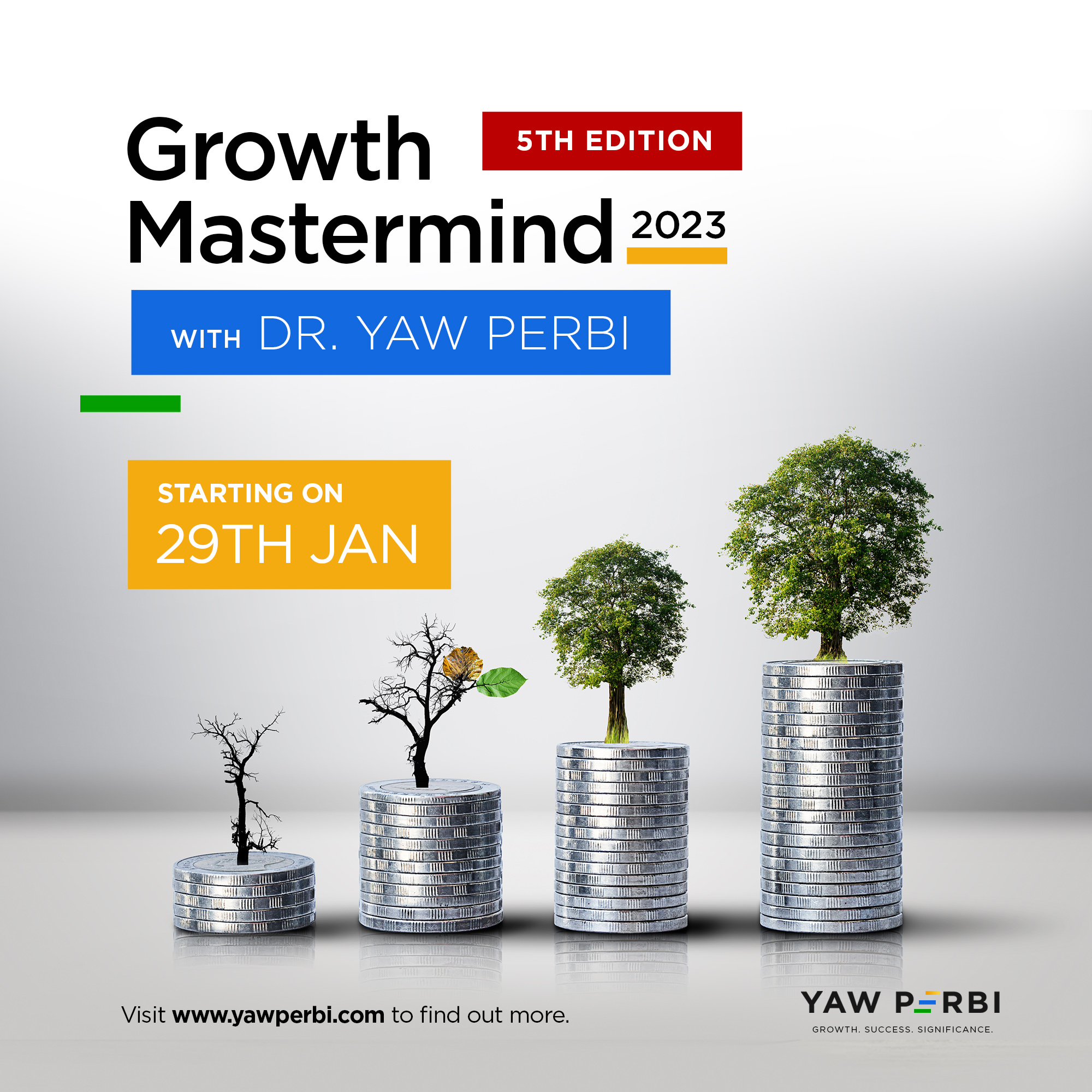
Not Investing in Yourself in Hard Times Doesn’t Make Things Any Better.
Hello! It’s a new year and guess what? It’s a blank cheque and we’ve got to grow to be able to meet our goals. I like to say, you’ve got to grow to goal. In other words, you’ve got to move from who you are today to what you could be in order to score your goals.
My YP Team and I know these are tough economic times and people are scrambling to make ends meet but I can tell you one thing for sure: your refusing to grow or not investing in your personal growth is not going to make things any better. In fact, your guarantee that you are going to come out of this time is actually investing in your personal development and professional growth today.
So, I greatly encourage and highly recommend that you to sign up for this year’s 15 Invaluable Laws of Growth Mastermind. Every year we’ve hosted a cohort, these people have moved, grown! People have changed in their lives. People have literally moved into their own homes, moved countries, moved jobs… Why? Because when you make a move, you grow; and when you grow, you move!
So, sign up today! Sign up now, right here. Even if for some reason you do not have all the money and you want to make an arrangement, we would be flexible because we know times are hard but we want you to grow. After all, if all of us grow, all of us can succeed together. Put in the investment NOW!
I have done that many times, signing up to grow when things have been hard, and I’ve reaped a harvest in the drought. If you know anything about investing then you are aware that we invest all the time–in good times and not-so-good times, when the market is up and when it is down. I would have never owned properties in Canada and the United States if I hadn’t put in nearly $20,000 in learning. I wouldn’t have been a John C. Maxwell Certified Coach if I didn’t put in some $10,000 about 10 years ago. Within months I had used the knowledge, skills and toolkit to recoup all the money back and more!
Guys, it costs something to get something. So, invest in your personal development and professional development today. Sign up for the Growth Mastermind. It’s not a matter of whether or not it will won’t work, it does–without fail. Don’t throw your hands up in the air saying, “I don’t have the money. ” No! Rather ask yourself, “how can I get the investment required because I need this to grow?” Let’s make it work. Yes we can! Yes we will!
Here’s to your growth, success and significance in 2023! Make the move here.

